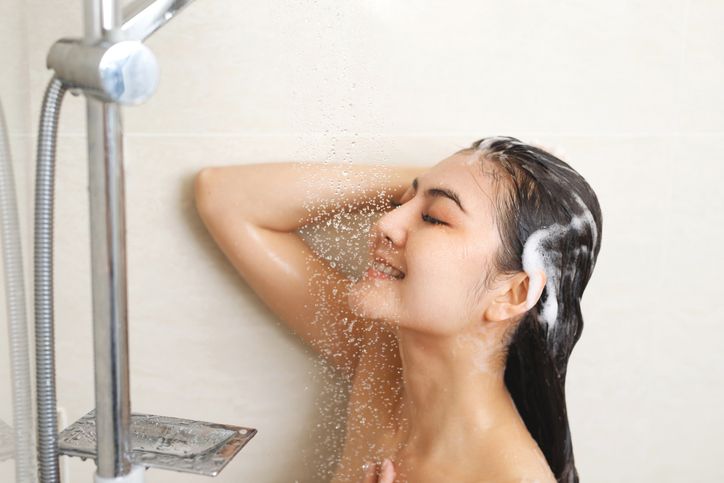
- Home
- Trend
- Weight Loss Strategies
- Acne Tips
- Hair Health Information
- Blemish Removal Tips
- Acne Scar Removal Tips
- Muscle Building Techniques
- Intimate Care Tips
- Postpartum Intimate Care
- Eye Bags Wiki
- Tips for Face Slimming
- Secret of Permanent Hair Removal
- Breast Enlargement Tips
- Cure to Snoring
- Marionette Lines
- Skin-Tightening Secrets
Maintaining a healthy scalp is crucial for achieving healthy hair. Yet, poor scalp health is often overlooked, leading to numerous hair and scalp issues. Let's delve into the factors contributing to an unhealthy scalp and how to foster a conducive environment for hair growth.
7 Main Causes of Your Poor Scalp Health
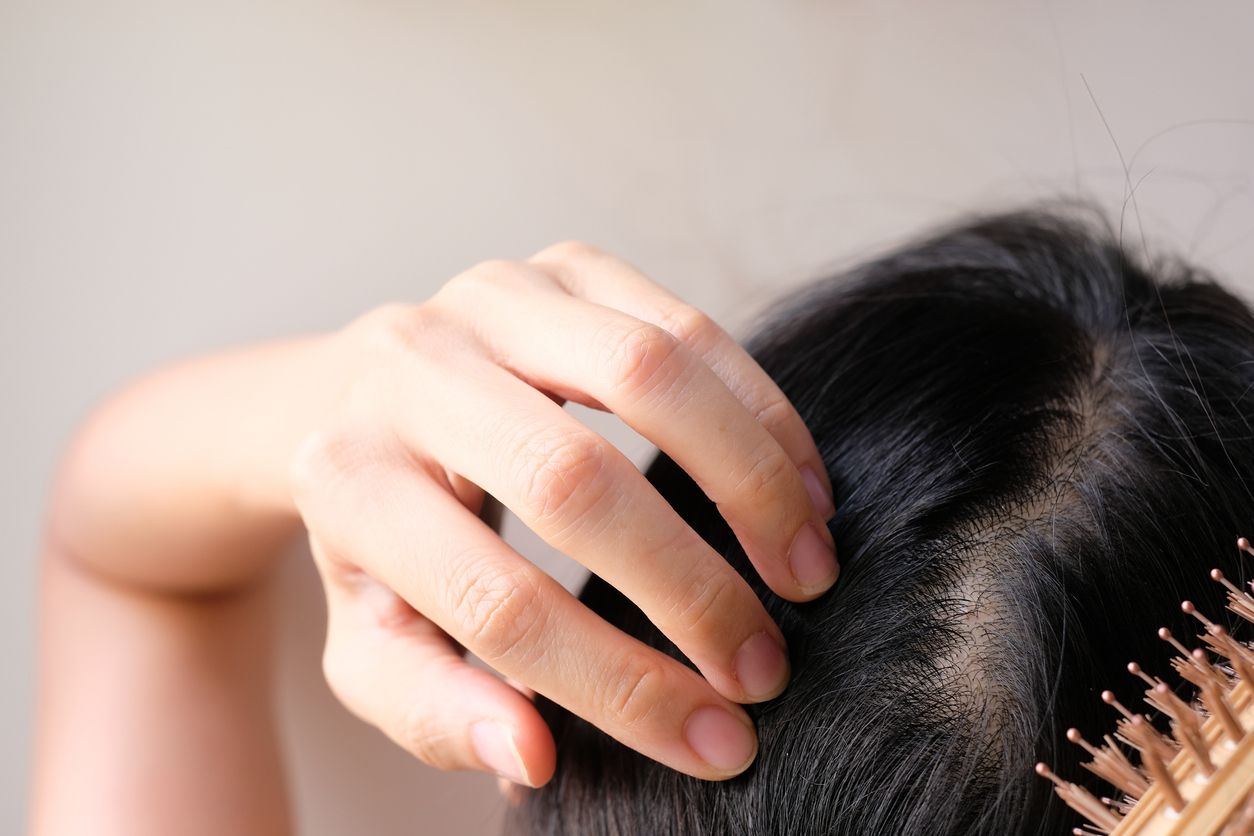
A healthy scalp provides the foundation for strong, beautiful hair. However, several factors can disrupt this ideal environment and lead to a cascade of problems. Here's a breakdown of some key causes of poor scalp health:
1. Overusing Chemical Cleansers
Overusing shampoos that contain harsh cleansing agents like sulphates (SLS and SLES) can have detrimental effects on the scalp. These chemicals are effective at removing dirt and oil but can also strip away the scalp's natural oils, which are crucial for maintaining moisture balance and protecting the skin barrier.
2. Nutritional Deficiencies
The scalp, like the rest of the body, requires a balanced intake of essential nutrients to maintain its health and function optimally. Nutritional deficiencies, particularly in vitamins A, C, E, and omega-3 fatty acids, can significantly impact scalp health.
3. Imbalanced Scalp Microbiome
The scalp has a natural microbiome, a community of microorganisms that plays a role in scalp health. Factors like harsh chemicals, stress, and medication use can disrupt this balance, creating an environment conducive to problems like dandruff and irritation.
4. Hormonal Fluctuations
Hormonal changes throughout life, such as puberty, pregnancy, and menopause, can affect scalp health. These fluctuations can lead to increased oil production or scalp sensitivity.
5. Underlying Medical Conditions
Certain medical conditions, such as eczema, psoriasis, and seborrheic dermatitis, can manifest on the scalp, causing inflammation, redness, and other issues.
6. Fungal or Bacterial Infections
Fungal infections like ringworm and bacterial infections can cause scalp itching, redness, and even hair loss.
7. Stress and Environmental Toxins
Chronic stress can contribute to scalp problems like dandruff and hair loss. Additionally, exposure to environmental pollutants can create oxidative stress, further compromising scalp health.
How Do You Know If You Have Poor Scalp Health?
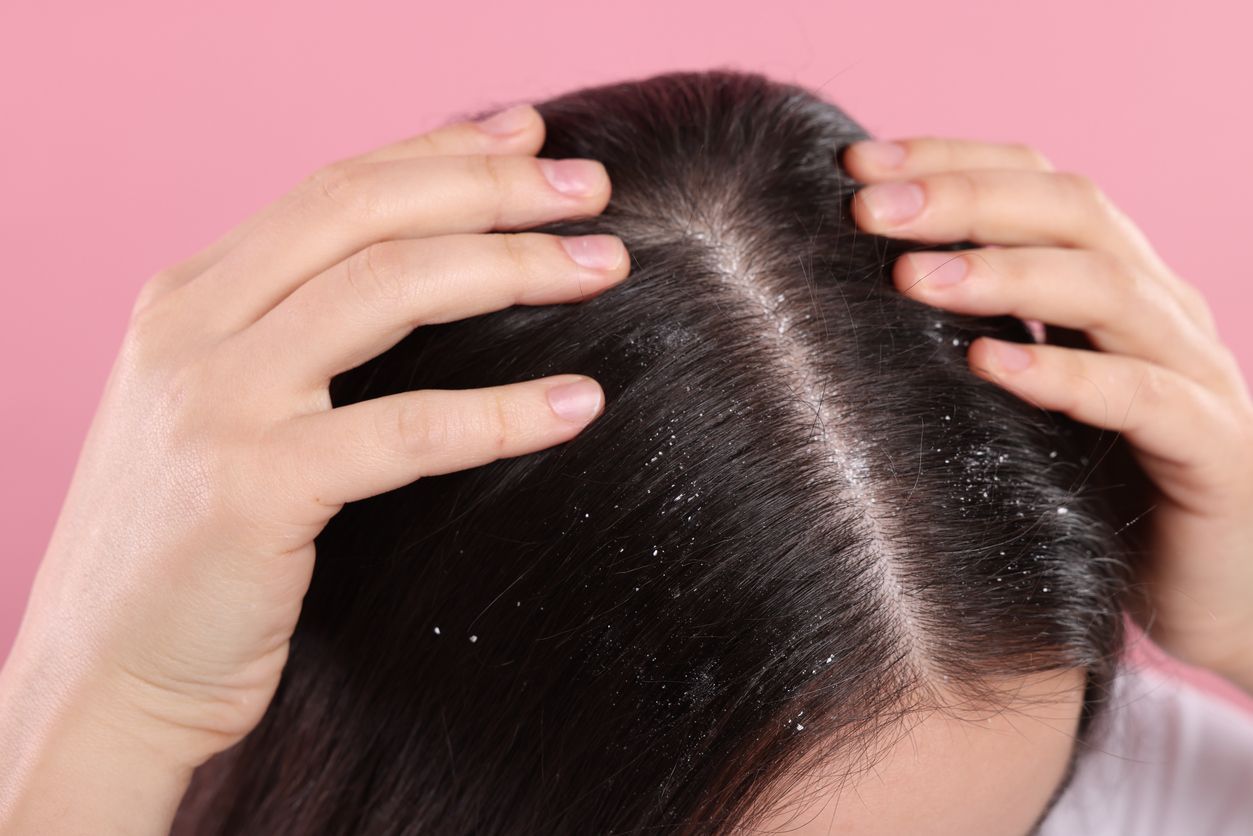
Everyone may experience poor scalp health differently, with varying signs that can affect the condition and appearance of your hair. Here are some common indicators of poor scalp health:
Dryness
A dry scalp often feels itchy, tight, and flaky. You might also see visible white flakes of dead skin (dandruff). Dryness can be caused by various factors like harsh weather, over-washing with stripping shampoos, or dehydration.
Irritation
Scalp irritation can manifest as redness, itching, burning, or a stinging sensation. This can be triggered by allergies to hair products, ingredients in shampoos, or even tight hairstyles that pull on the scalp. Dandruff can also contribute to scalp irritation.
Excessive Oiliness
An oily scalp can make hair look greasy and limp. This is often caused by overactive sebaceous glands that produce excess sebum (oil). Factors like stress, hormones, and using the wrong hair products can contribute to an oily scalp.
Dandruff
This is a common scalp condition characterised by white or yellowish flakes of dead skin cells. While mild dandruff isn't serious, it can be bothersome and embarrassing. There are two main types of dandruff: seborrheic dermatitis (oily dandruff) and scalp psoriasis.
Scalp Conditions
Several other conditions can affect scalp health, such as:
• Seborrheic dermatitis: This can cause red, scaly patches on the scalp, eyebrows, and sides of the nose. It can be itchy and uncomfortable.
• Psoriasis: This autoimmune disease can cause red, scaly patches on the scalp and other parts of the body.
• Folliculitis: This is an inflammation of the hair follicles, which can cause red bumps, pustules, and itching.
• Tinea capitis (ringworm): This is a fungal infection of the scalp that causes itchy, scaly patches and hair loss.
免費體驗
F8 Hair Regrowth Treatment
1 Minute Self-Registration
Date should not be before minimal date
Signs of an Unhealthy Hair and Scalp Health
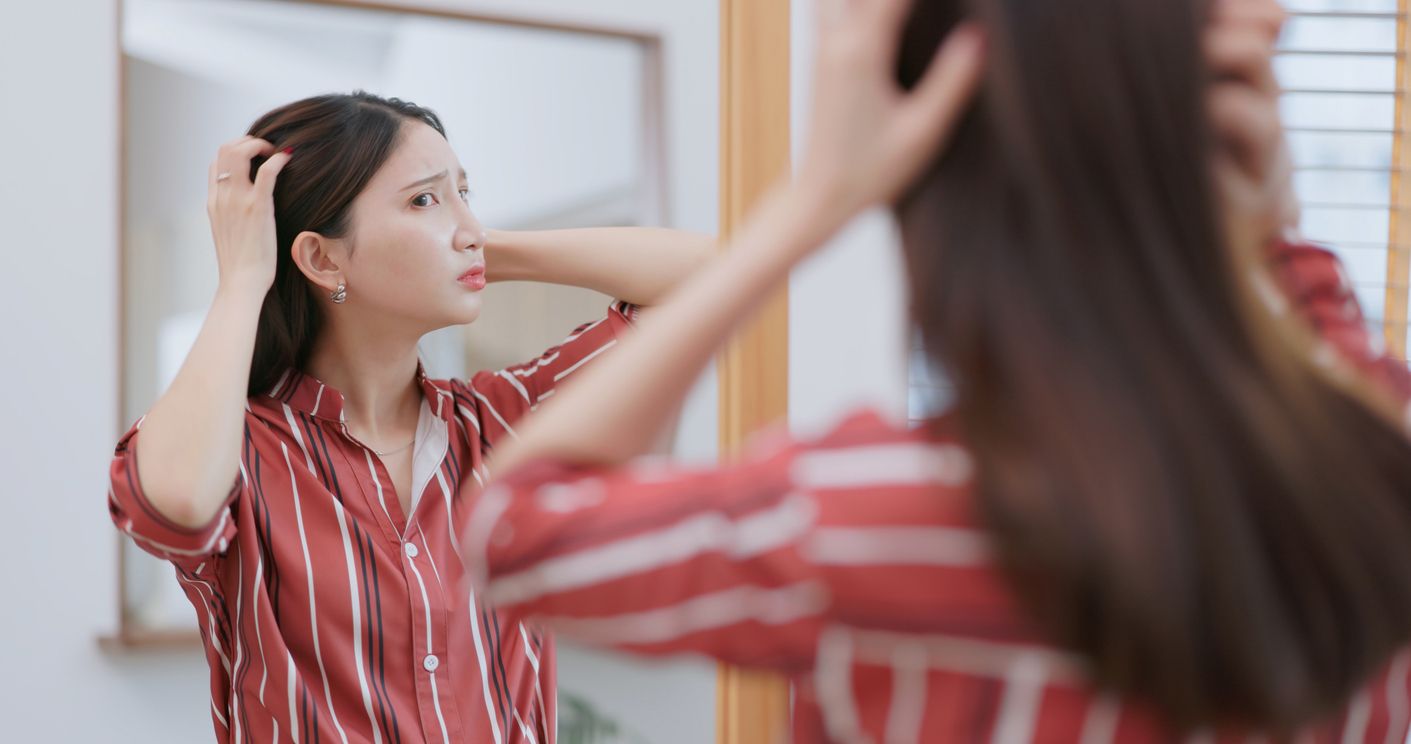
While an occasional itchy scalp or bit of dandruff might not be a cause for immediate alarm, neglecting persistent signs of an unhealthy scalp can lead to a cascade of problems. Here's a closer look at the potential consequences of ignoring the maintenance of your scalp health.
Scalp Erythema and Inflammation
The presence of erythema (redness) and inflammation on the scalp indicates an irritated state. This irritation can be caused by various factors, including allergies to hair products, harsh chemicals in shampoos, or even ultraviolet radiation exposure (sunburn).
Scalp conditions such as psoriasis and eczema can also manifest with scalp inflammation. In rare instances, a compromised and inflamed scalp creates a vulnerable environment for bacterial or fungal infections to take hold. These infections can cause further irritation, hair loss, and require medical attention.
Alopecia (Hair Loss) and Hair Thinning
Chronic inflammation and irritation can disrupt this process, leading to stunted hair growth and increased shedding. Alopecia, or hair loss, and hair thinning are often the most concerning signs of an unhealthy scalp. While genetics and other factors can play a role in hair loss, a compromised scalp environment can exacerbate the problem.
Poor scalp health can also hinder healthy hair growth and contribute to hair loss conditions like telogen effluvium (temporary hair loss). Hair loss can significantly impact self-esteem and confidence. When hair loss stems from an untreated scalp issue, it can be a source of frustration and emotional distress.
How Poor Scalp Health Can Lead to Premature Hair Loss?
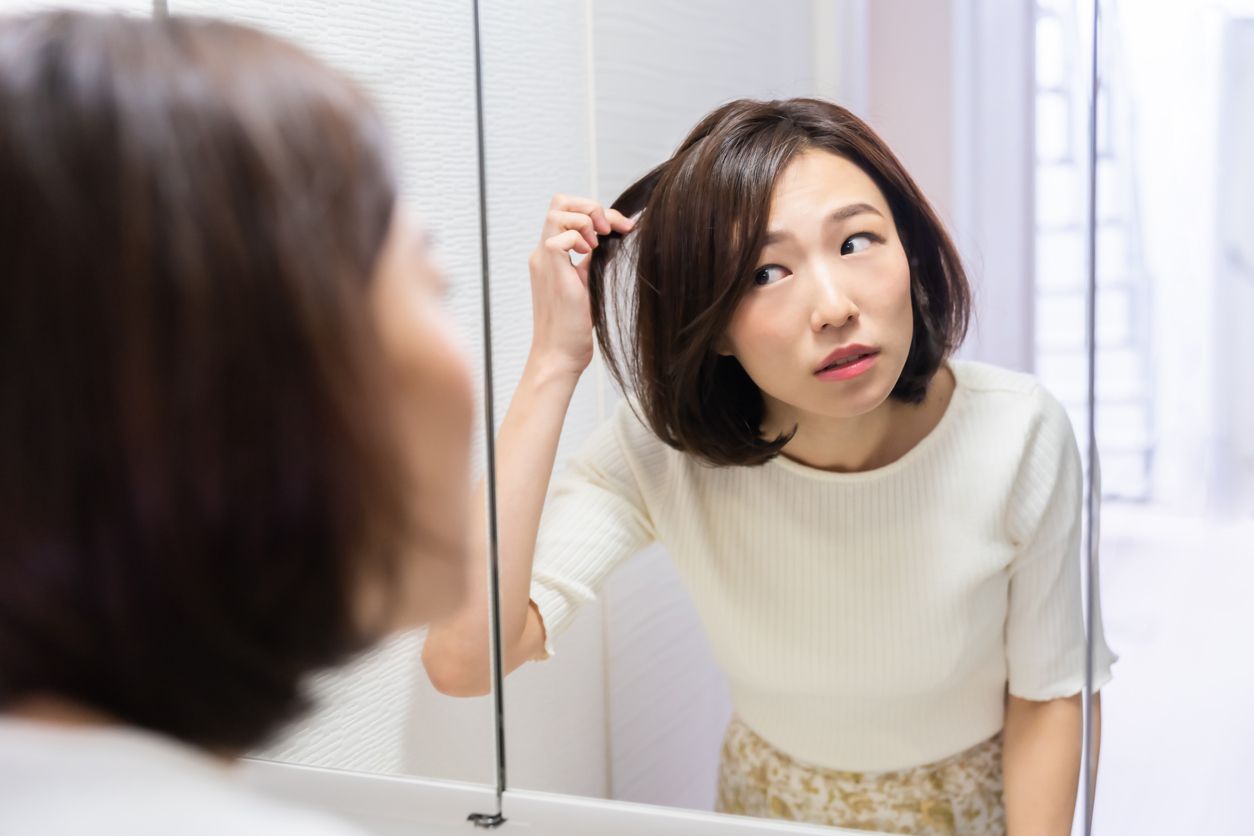
As poor scalp health can definitely contribute to hair loss, you may encounter these problems alongside your thinning hair:
Disrupted Hair Growth Cycle
A healthy scalp provides the optimal environment for hair follicles to function properly and complete their growth cycle. This cycle consists of three phases: anagen (growth), catagen (transition), and telogen (resting).
Poor scalp health can disrupt this cycle in several ways. For example, inflammation or irritation can damage hair follicles, shortening the anagen phase and leading to premature shedding.
Nutrient Deficiencies
A healthy scalp allows for proper blood flow and nutrient delivery to the hair follicles. Scalp conditions or imbalances can hinder this process, depriving hair follicles of essential nutrients for growth and strength. This can lead to hair becoming weak and brittle, increasing the risk of breakage and potential hair loss.
Increased Susceptibility to Hair Loss Conditions
Certain scalp conditions, like seborrheic dermatitis or scalp psoriasis, can create an environment that promotes inflammation and irritation. This chronic inflammation can weaken hair follicles and make them more susceptible to existing hair loss conditions like androgenetic alopecia (male/female pattern baldness) or telogen effluvium (temporary hair loss).
The severity of scalp health issues can influence the impact on hair loss. While mild dryness might not cause significant hair loss, severe cases of scalp conditions can lead to noticeable hair thinning or bald patches.
Want to Stop Thinning Hair? Time to Build a Healthy Scalp
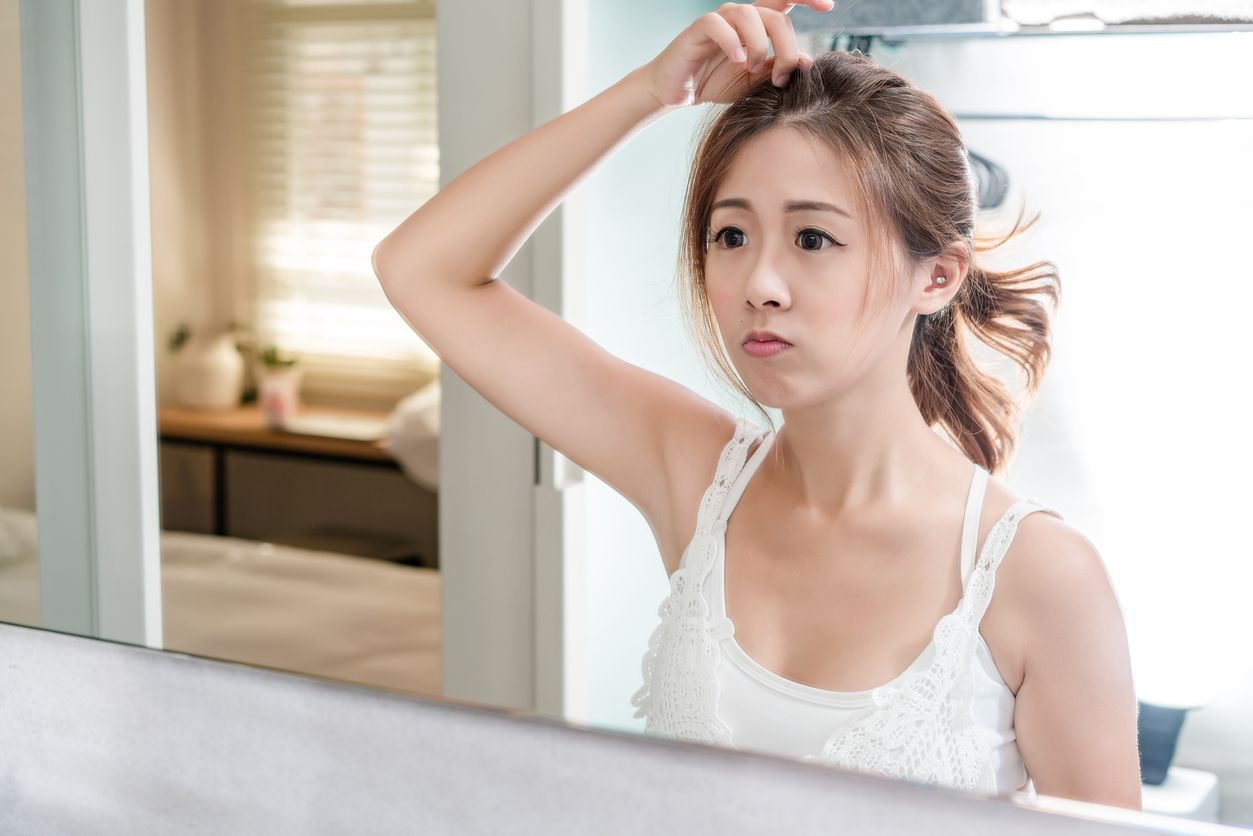
1. Choose Gentle Cleansers and Nourishing Conditioners
While avoiding harsh sulphates like SLS and SLES is wise, some sulphate-free options can still be too stripping. Look for shampoos with milder cleansers like cocamidopropyl betaine or coco-glucoside.
• Condition Regularly: Use a conditioner suited to your hair type (fine, thick, etc.) after every wash to replenish moisture and improve manageability. Consider conditioners with ingredients like shea butter, argan oil, or ceramides for added nourishment.
2. Exfoliate Strategically (and Gently)
Exfoliate your scalp 1-2 times per week, depending on your scalp type (oily can benefit from more frequent exfoliation, while dry might need less).
• Choose the Right Scrub: Opt for a gentle scalp scrub formulated for hair care. Avoid harsh scrubs with large granules that can irritate the scalp. You can even create a DIY scrub with brown sugar and olive oil (for a moisturising effect).
3. Scalp Massage for Improved Circulation
Use the pads of your fingers to gently massage your scalp in circular motions for 5-10 minutes. Apply light to medium pressure to avoid irritation.
• Benefits Beyond Blood Flow: Scalp massage can also help distribute natural oils throughout your hair and promote relaxation, potentially reducing stress-related hair loss.
4. Dietary Tweaks for Scalp Health
Maintaining a healthy scalp requires a well-balanced diet rich in specific nutrients. When these nutrients are lacking, a chain reaction can occur, leading to various scalp problems.
For instance, Vitamins A, C, and E play crucial roles in scalp health. Vitamin A helps maintain healthy sebum production, which keeps the scalp moisturised. Vitamin C is an antioxidant that protects scalp tissues from free radical damage, and vitamin E promotes healthy cell turnover for a healthy scalp environment. Deficiencies in these vitamins can contribute to dryness, irritation, and even increased susceptibility to scalp infections.
5. Minimise Heat Styling and Harsh Chemicals
If using heat styling tools is unavoidable, apply a heat protectant spray beforehand and use the lowest heat setting effective for your hair type. Air drying whenever possible is ideal.
• Chemical-Free Alternatives: When possible, opt for natural hair dyes and avoid harsh chemical treatments that can damage the scalp and hair.
6. Targeted Treatments for Specific Concerns
• Tea Tree Oil (Diluted): As mentioned, tea tree oil has anti-inflammatory and antimicrobial properties that can soothe an itchy scalp or combat dandruff. However, always dilute tea tree oil with a carrier oil (like jojoba or coconut oil) before applying it to your scalp to avoid irritation. Apply a small amount to the affected area and leave it on for a few minutes before rinsing thoroughly.
• Hair Masks: Look for hair masks formulated with ingredients that address your specific scalp concerns. For example, a hydrating mask with hyaluronic acid can benefit a dry scalp, while a mask with salicylic acid might help manage dandruff.
免費體驗
F8 Hair Regrowth Treatment
1 Minute Self-Registration
Date should not be before minimal date
Improve Scalp Health & Promote Hair Growth: F8 Hair Regrowth Treatment

If you are searching for more effective intervention to solve your concern, worry not: Enhancing scalp health and combating hair loss are primary concerns addressed by the F8 Hair Regrowth Treatment.
At Perfect Medical, our innovative approach combines low-energy laser beams and a nutrient-rich serum in this treatment to stimulate blood circulation in the scalp, promoting better nutrient delivery to hair follicles. By revitalising the scalp environment, this treatment encourages healthier hair growth cycles, potentially reducing hair shedding and thinning over time.
The F8 treatment targets underlying issues like poor scalp circulation and follicle miniaturisation, commonly associated with conditions such as androgenetic alopecia. By employing advanced laser technology and a specialised serum, it aims to reverse these effects, fostering an environment conducive to robust hair growth. This holistic approach not only nourishes the scalp but also strengthens hair roots, promoting thicker, fuller hair.
Regular sessions of F8 Hair Regrowth Treatment can also improve scalp condition by reducing inflammation and enhancing cell metabolism. This dual-action method supports overall scalp health, creating an optimal foundation for sustained hair growth. With its non-invasive nature and focus on natural revitalization processes, the F8 treatment offers a promising solution for individuals seeking to restore both scalp health and hair density effectively.
Regain Scalp and Hair Health for a Confident You!
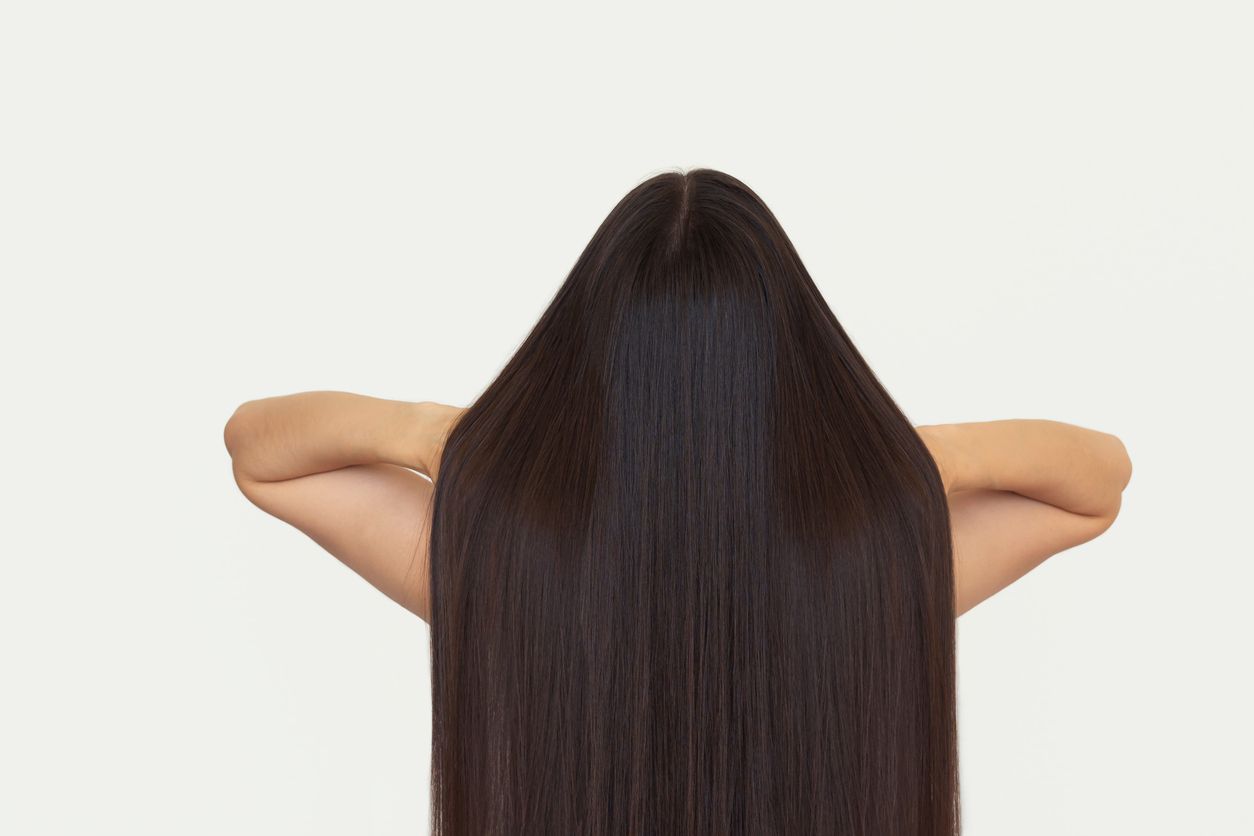
Poor scalp health can significantly impact hair quality and growth. By understanding the causes and adopting a proactive scalp care routine, you can enhance your scalp's health and, in turn, achieve healthier hair. Embrace gentle hair care products, a balanced diet, and try out our treatment to foster an environment where your hair can thrive. Contact us for a trial session today and experience the difference of F8 Hair Regrowth Treatment!
免費體驗
F8 Hair Regrowth Treatment
1 Minute Self-Registration
Date should not be before minimal date
FAQ

1. What causes excessive hair loss and how can it be managed?
Excessive hair loss can stem from a variety of factors including genetic predisposition, hormonal changes, stress, nutritional deficiencies, and certain medical conditions like alopecia areata. Managing excessive hair loss often involves improving scalp health through a balanced diet rich in vitamins and minerals essential for hair growth. Additionally, reducing stress levels, using gentle hair care products, and seeking medical advice for underlying conditions can help manage and potentially reduce hair loss.
2. How does the scalp produce natural oils, and why is this important for hair health?
The scalp produces natural oils, known as sebum, which play a crucial role in hair health. Sebum helps moisturise the scalp and hair, providing a protective barrier against environmental damage and preventing dryness. This natural oil balance is vital for maintaining scalp health and ensuring the hair remains nourished and hydrated.
3. What are some common scalp issues and their treatments?
Common scalp issues include dandruff flakes, irritated scalp, clogged hair follicles, and oily scalp. Dandruff can be treated with anti-dandruff shampoos containing active ingredients like zinc pyrithione or ketoconazole. An irritated scalp may benefit from soothing treatments such as scalp massages with essential oils or using gentle, fragrance-free products. Clogged hair follicles can be addressed with exfoliating scalp treatments to remove buildup and restore follicle health, while an oily scalp may require sulphate-free shampoos and regular cleansing to regulate sebum production.
4. How does a sulphate-free shampoo benefit different hair types?
Sulphate-free shampoos are formulated without harsh detergents like sodium lauryl sulphate (SLS), which can strip the scalp and hair of natural oils. For individuals with sensitive scalp issues or dry, brittle hair, sulphate-free shampoos offer a gentler cleansing alternative. By maintaining the scalp's natural moisture balance, these shampoos help prevent dryness, reduce scalp irritation, and improve overall hair health.
5. Can poor eating habits contribute to brittle hair and scalp issues?
Poor eating habits, such as a diet lacking essential nutrients like vitamins, proteins, and minerals, can adversely affect hair health. Nutrient deficiencies can lead to brittle hair, scalp dryness, and increased hair fall. To promote healthy hair growth and maintain scalp health, it's essential to adopt a balanced diet that includes foods rich in omega-3 fatty acids, biotin, zinc, iron, and vitamins A, C, and E. These nutrients support optimal hair growth and contribute to a healthy scalp environment.





